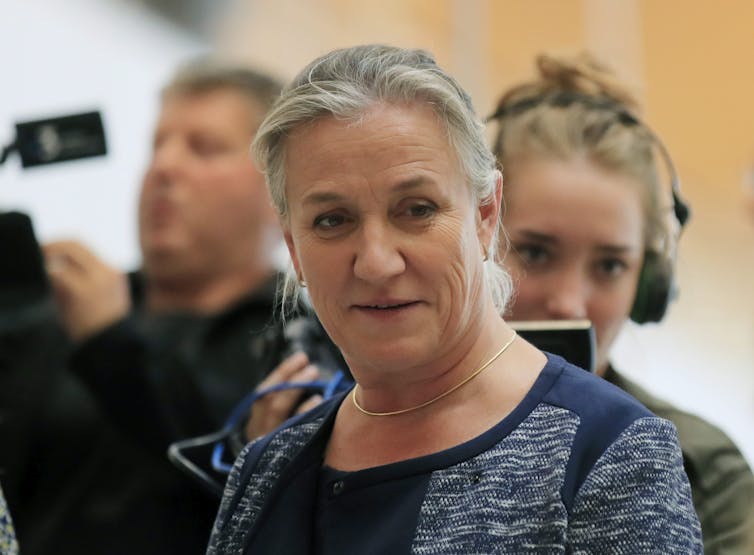Why is it so difficult to handle whistleblower reports?
Wim Vandekerckhove, EDHEC Professor, Nadia Smaili and Paulina Arroyo Pardo, UQAM Professors, analyse, in article initially published in The Conversation, the difficulties encountered by companies and possible improvements in the management of whistleblowing.
Whistleblower rights are on the rise, it seems. In February 2023, the Grand Chamber of the European Court of Human Rights overturned an earlier criminal conviction of Raphaël Halet, one of the LuxLeaks whistleblowers that disclosed tax avoidance practices at PricewaterhouseCoopers.
Meanwhile in France, the Mediator drug case still drags on after more than a decade. Pharmaceutical firm Servier recently launched an appeal against convictions it was handed in 2021 for concealing the risks of the Mediator weight-loss pill. Irène Frachon, the doctor that discovered the drug’s potentially fatal side effects, still maintains her courageous whistleblowing efforts.
The protection of whistleblowers in Europe is about to get another boost. In transposing the EU Whistleblowing Directive, the 27 member states are updating or introducing new legislation. A key feature of the directive is that organizations of 50 or more employees are obliged to have an internal speak-up system.
Existing research indicates 95 per cent of people initially blow the whistle inside their organization before considering going external. Yet, companies underestimate what it takes to make internal whistleblowing successful.
The key difficulty is less about getting more people to use company whistleblowing channels and more about how to handle whistleblowing cases effectively. A well-known example is that of Yasmine Motarjemi who, as a food safety expert at Nestlé, blew the whistle about harmful baby food products inside the company. The company ended up putting the head of that faulty product line in charge of Motarjemi. Soon after, she was fired.
Opposing views
In our newly published research in the Journal of Business Ethics, we explain what makes whistleblowing reports so difficult to handle.
On one side are whistleblowers who usually don’t provide all relevant information, and who might have unrealistic expectations about the whistleblowing process. On the other side is a company’s top management who just want to get on with things and might have expectations that are…well, unrealistic.
Caught in the middle are compliance officers, or integrity professionals, who want to do their jobs well but are torn apart by two sides pulling in opposite directions.

We used agency theory to gain insights into what causes the handling of whistleblowing to be so difficult and recommend some solutions. Agency theory relates to situations in which a person (the principal) delegates a task to someone else (the agent). The agent then acts on behalf of the principal.
Difficulties arise when agents and principals have different interests, information and time horizons. In the case of whistleblowing from inside a company, a peculiar situation arises. Top management delegates the task of handling whistleblower cases to a compliance officer. But the whistleblower also delegates a task to compliance officers — to investigate and stop the wrongdoing they are reporting.
These tasks are only seemingly the same, but in reality compliance officers are agents with two principals: whistleblowers and top management. This double agency makes it extremely difficult for compliance officers to handle whistleblowing. Let’s take a closer look at what exactly causes these difficulties.
Three types of problems
We found there are three types of problems compliance officers face: unaligned goals, misunderstood efforts and differences in risk appreciation. These are typical of agency relationships, but specific for internal whistleblowing is that compliance officers are squeezed between two principals — hence, the double trouble.
First, we found the two parties have unaligned goals in how they understand what the good handling of a whistleblowing report is. Whistleblowers are focused on outcome, while top management is focused on reducing negative consequences for the organization. The interest of compliance officers lies in due process and conducting a proper fact-finding investigation process.
Second, the efforts by compliance officers are often misunderstood. Whistleblowers are unable to fully understand the efforts of compliance officers because officers can’t disclose the details of an investigation. Top management also can’t fully understand how compliance officers handle reports because it measures effort in terms of the number of reports and closed cases.
Third, both whistleblowers and top management take risks with compliance officers, but in very different ways. Whistleblowers take risks because compliance officers might not take their concerns seriously or keep their identity confidential. Top management take risks by putting their organization’s reputation and the responsibility of avoiding litigation in the hands of compliance officers.
Psychological costs
Agency theory allows us to identify financial and non-financial costs related to agency problems. Whistleblowers and top management each have their own monitoring costs when it comes to observing and controlling compliance officers’ behaviour to reduce their own risk taking.
We find, however, that compliance officers bear double the cost in trying to be a trustworthy agent for both principals. Towards whistleblowers, they want to be credible investigators and safeguards of confidentiality. But they also bear the cost of psychological stress because they cannot be fully transparent to whistleblowers.

Towards top management, compliance officers want to get employees to report wrongdoings internally and handle these incidents swiftly. But compliance officers bear the cost of psychological stress because they cannot fully control a whistleblower’s next steps.
A matter of trust
According to agency theory, conflicts and problems can be resolved by aligning the goals and interests of agents and principals.
Our research indicates that the problems of double-agency in handling whistleblowing can be resolved by empowering compliance officers to reduce their bonding costs vis-à-vis whistleblower and top management.
This can be done in a number of ways, including by publishing performance metrics of the handling process, communicating whistleblowing procedures, making efforts to preserve confidentiality or by giving frequent feedback to whistleblowers.
An alignment of the internal speak-up system with an externally validated benchmark like ISO 37002 can also help communicate the trustworthiness of compliance officers to all stakeholders. Top management should receive training on whistleblowing and how to handle reports. Compensation schemes that include a measure of effectiveness of handling whistleblower reports should also be explored.
These governance measures aim to make compliance officers trustworthy leaders of the internal whistleblowing process. Trust is not only required to motivate employees to speak up, but also to assure whistleblowers and top management that the whistleblowing systems actually work.
The strengthened legal protections for whistleblowers across EU member states will force companies to have internal whistleblowing systems in place. It’s crucial that organizations empower compliance officers with strong mandates. A better understanding of the complexity of handling internal whistleblowing could motivate organizations to make internal whistleblowing systems more effective.
This article, written by Wim Vandekerckhove, EDHEC Business School Professor, Nadia Smaili and Paulina Arroyo Pardo, Université du Québec à Montréal (UQAM) Professors, has been republished from The Conversation under Creative Commons licence. Read the original article.
Photo by Hugo Jehanne on Unsplash
![]()




